International Community Development Profile: Paskalina Niima Family
In this series, families in the Reaching Children’s Potential (RCP) Demonstration Program in Tanzania explain how their participation improves their lives. Global Volunteers’ RCP Program engages short-term volunteers to help parents deliver essential services improving health, eradicating hunger, and enhancing cognition – with the goal of eliminating child stunting in the Ukwega Ward and throughout Tanzania. Through RCP, families obtain the nutrition, health care, knowledge, technology, and encouragement needed to combat stunting, and to ensure their children can realize their full potential. The RCP Program is a child-focused, parent-driven, family-centered, and community-led comprehensive effort. It begins with pregnancy, and continues through the 18th birthday, with a focus on the first 1,000 days of life. Read Paskalina Niima’s interview about the RCP Program here.
We’re interested in learning about your normal daily life, where you and your husband are from, and how you earn a living, Paskalina.
My husband and I were both born and raised in Manyara, which is another region in Tanzania close to Arusha. My husband still lives in Manyara, but I had to move to Ipalamwa for work in 2016. My education level is a secondary school level and I had a chance to go further for my certificate education in laboratory. Before coming to Ipalamwa, I was temporarily helping in one of the dispensaries in Morogoro. While there, I heard about this job opportunity in Iringa and I was very excited to come to work in Iringa because I had heard good things about this region. I had been dreaming of coming here. So I moved to Ipalamwa in 2016 and I’m still working here at the Ipalamwa Secondary School as a matron. I love Ipalamwa because there are fresh fruits, mostly avocados and bananas. There is a community water tap where I can fetch water right outside my home. My husband is very supportive in anything our children or I need.
As a matron at Ipalamwa Secondary School, I spend most of my time at the school, especially the dormitories. I always wake up at 6:00 in the morning and make sure all the students are ready to go for morning devotion and classes. When students are in class, I help with the school activities. When I get free time, I use it for domestic activities since I do not have a nanny to help me with my kids at home. It is not often that I get time to read story books.
What are your family’s biggest challenges? How do you try to address them?
Financial challenges are the main challenges we face. Sometimes I wish I could do more things, but I can’t because I lack money. But I’m grateful that my husband is supportive in every situation.
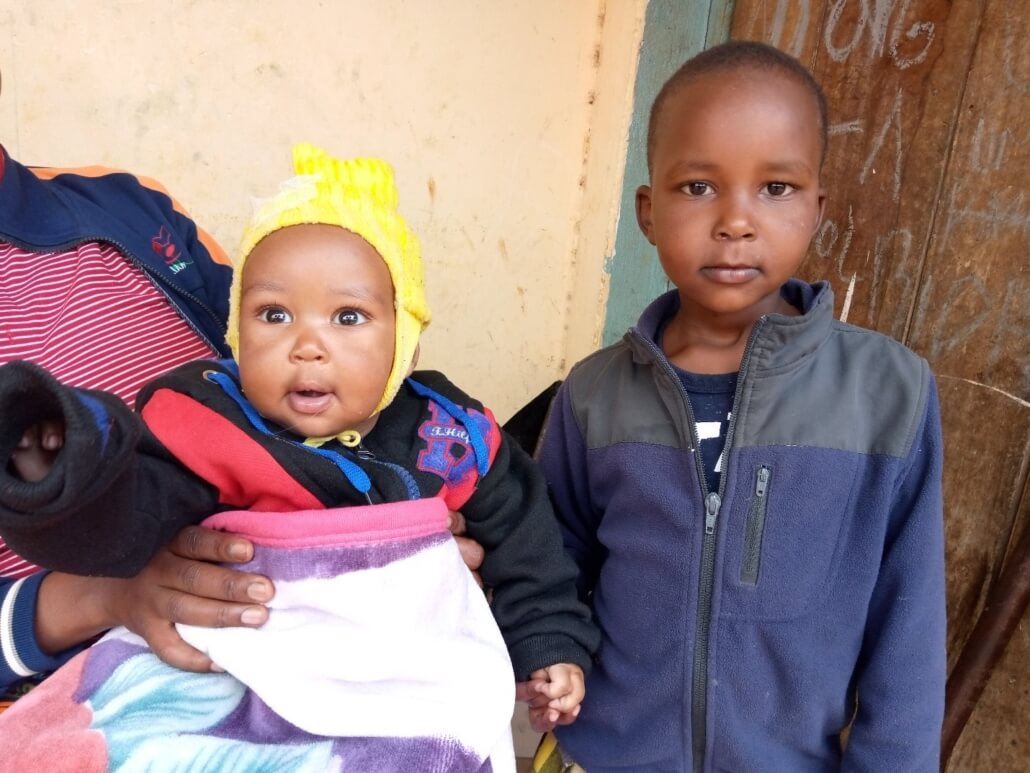
Have the Rise Against Hunger meals been important for your family’s nutrition?
The Rise Against Hunger meals have been very helpful to me and my children. When I eat the meals, I become very energetic and have enough breast milk for my son, Gregory, since he has not started eating solid foods, yet. He gets enough breast milk every time he eats. His weight has been increasing every month when I go to the clinic. He now weighs nine kilograms (19.8 pounds) and he is very healthy. Glory is also eating the Rise Against Hunger meals and she is always very excited to eat them. Her favorite foods are Rise Against Hunger meals and spaghetti. She is also healthy.
As for me, I had challenges to eat the meals when I was pregnant with Gregory. I couldn’t eat them at all, but now I eat the meals very well and I also like them. When I cook the Rise Against Hunger meals, I just add a little salt and oil. We always get three to four meals per day. We eat the Rise Against Hunger meals once per day and we eat other foods like ugali, rice, spaghetti, beans, fish, sardines, meat, potatoes, cassava, yams, vegetables, and fruits.
How has the hand-washing station helped your family? Do you find it easy to use?
The hand-washing stations have been very helpful and have eased the work. Sometimes it is difficult to wash hands without the hand-washing station because you have to find a bucket or basin to wash your hands in and this is a long process which made me forget to wash my hands sometimes. But after I got the hand-washing station, it was easy to wash my hands any time because there is clean water and soap placed right there and ready for that purpose. When I touch something dirty or when I come from the toilet, I do not have to go into the house to find things to help me wash hands. Instead, I can immediately wash my hands at the hand-washing station and continue with other activities.
When I first learned about the hand-washing station, I was so excited to use it. I knew it was easy because we had already been taught how to use it in the workshop. So, after the workshop, I went back home and prepared a place where the hand-washing station would be installed. I instructed my daughter, Glory, on the use of the hand-washing station and she knows how to use it, though she sometimes needs help. But I continue insisting with her to wash her hands at the hand-washing station to help prevent diseases. Since I started using the hand-washing station, my family has been very healthy.
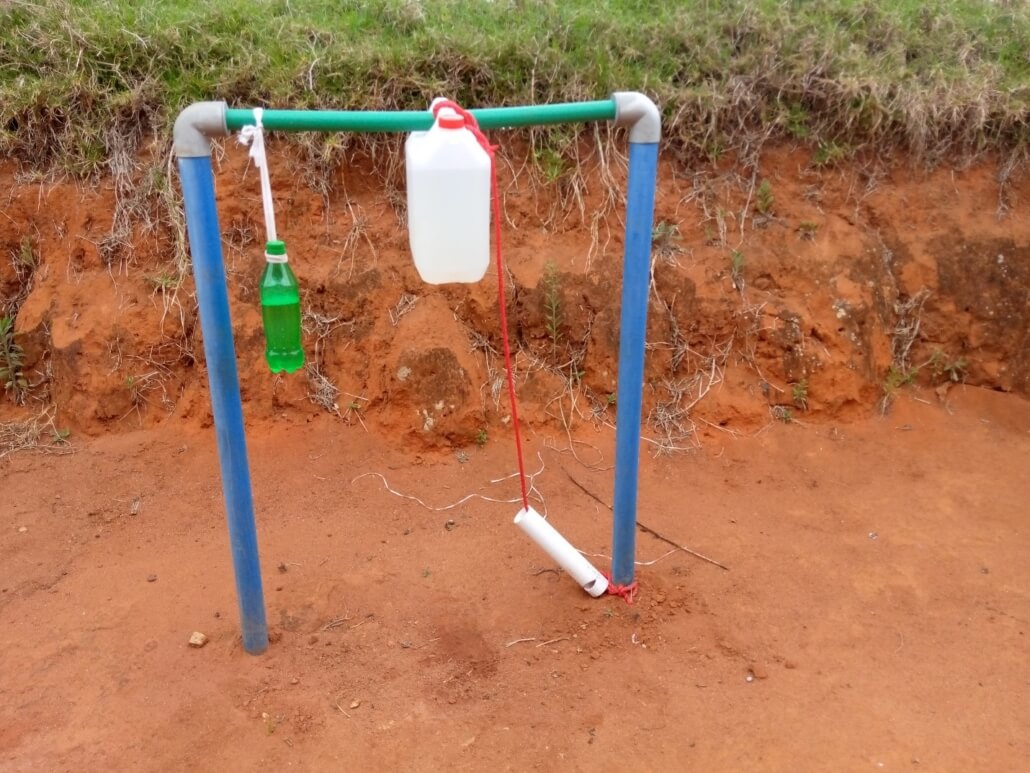
What are the personal changes you’ve made in your life since joining RCP that have resulted in better health for you and your children? What are you doing differently now?
I have learned a lot about good hygiene, mostly the use of the hand-washing station. Truly, I didn’t know the importance of the hand-washing station and how easy this technology is. I was not concerned about washing my hands, but after the workshops and hand-washing station installation, I became aware and took it seriously. Also, from the program I have learned self-assessment of diseases before going to the hospital and how I could prevent my family and myself from getting diseases. For example, I have learned a lot about cancer and I always take precautions and assess myself to make sure I’m safe.
If you have been using the clinic services in Ipalamwa, how are they different from medical services available before the clinic opened?
The services at the Ipalamwa General Clinic are great. They are very professional. They speak kindly to everyone and are very welcoming. Also, the way they handle the process is very different from other dispensaries in the village. The process at the Ipalamwa General Clinic is very organized and assures that the patient receives good services.
In what other ways as you educating yourself about improving health, nutrition, and cognition?
I always make sure that my children are getting good nutrition by giving them a variety of foods and I make sure they stay clean all the time. With regards to cognition, especially with Glory, I always teach her to count and write a little bit. I sometimes allow her to go to the kindergarten at the primary school since we are very near the primary school. This helps her to improve her cognition so much because she is also getting time to play with her fellow kids.
“The services at the Ipalamwa General Clinic are great. They are very professional. They speak kindly to everyone and are very welcoming. The process at the Ipalamwa General Clinic is very organized and assures that the patient receives good services.”
– Paskalina Niima, RCP mom
What can you tell us about your children, Paskalina? How did you choose their names?
Glory likes to play around with her fellow kids. She likes to write and count numbers up to ten in Swahili and one to five in English. I gave her the name “Glory” because I wasn’t sure if I would have a safe delivery. I had to have a C-section, so after delivery I gave her the name “Glory” meaning “Glory to God”, who helped me deliver her safely. As for Gregory, I just wanted to give him a name similar to his sister’s. Glory likes her younger brother so much and she always wants to carry him in her arms, but she is not yet able to do that.
I want my children to become very educated and successful people in the future. Glory always says she wants to become a teacher because she always sees how the teachers teach in the class. I wish she could become a doctor. But I will be supportive to anything that she wants to become in the future for a better life. With the help of the program and the workshops that we always receive, I hope I will be able to raise and nurture my children well so they will have a bright future.
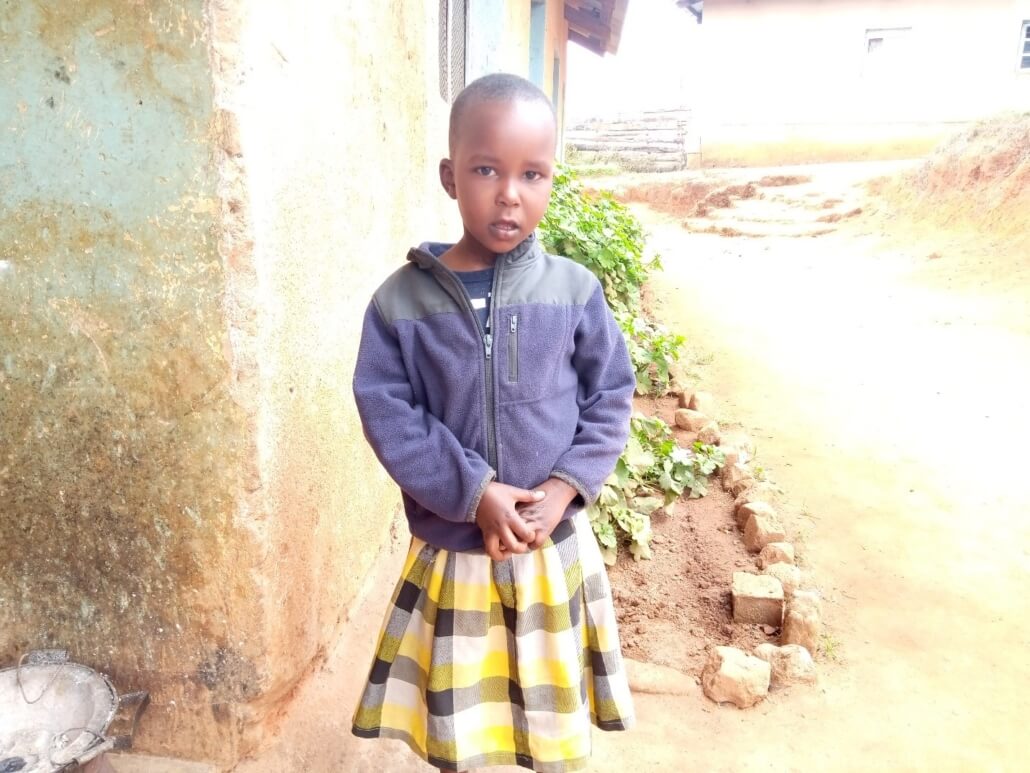
Since they live close to the primary school, Paskalina lets Glory peek in on kindergarten classes there and play with other children when they aren’t in class. 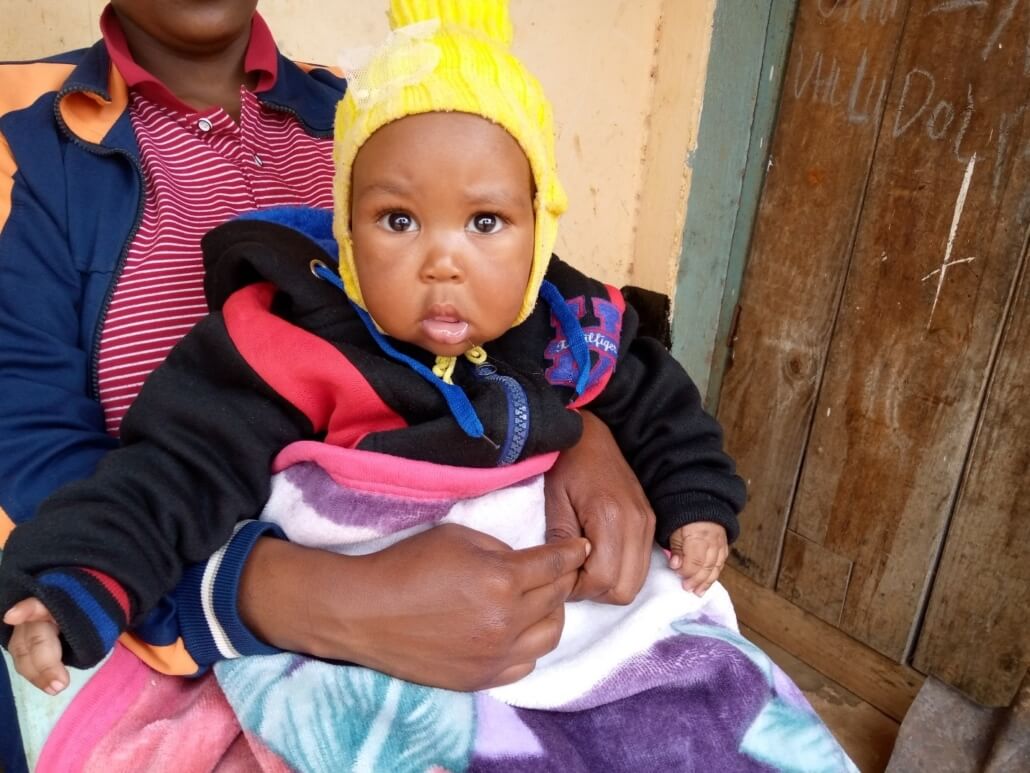
Five-month-old Gregory has been consistently gaining weight each month and is in good health.
“With the help of the program and the workshops that we always receive, I hope I will be able to raise and nurture my children well so they will have a bright future.”
– Paskalina Niima, RCP mom
Do you celebrate birthdays?
I did it once for Glory, but in other years I couldn’t do it because I was not well off economically. But what I usually do is to prepare a special food for her as a gift.
What are you most proud of in your family? What do you hope for in one year? In 3 years?
I feel so happy when I see my children growing healthier and stronger. I always hope for the best for them. In the future, I have a plan to open a store for selling domestic items here in the village. This will also be helpful to accommodate more needs for my children.
What are your visions for the future and what values from your ancestors and cultures are you trying to maintain?
In Manyara, we also pay dowries before couples get married, but it is a little bit different from how Ipalamwa conducts the process. In Ipalamwa the dowry process can be conducted even months before marriage, but in our home in Manyara, the dowry event is conducted one day before marriage. Also, we always help each other in any circumstance, for example, in sickness, for funerals, and at celebrations. In these matters, the community is responsible for handling all the situations and not the family themselves.
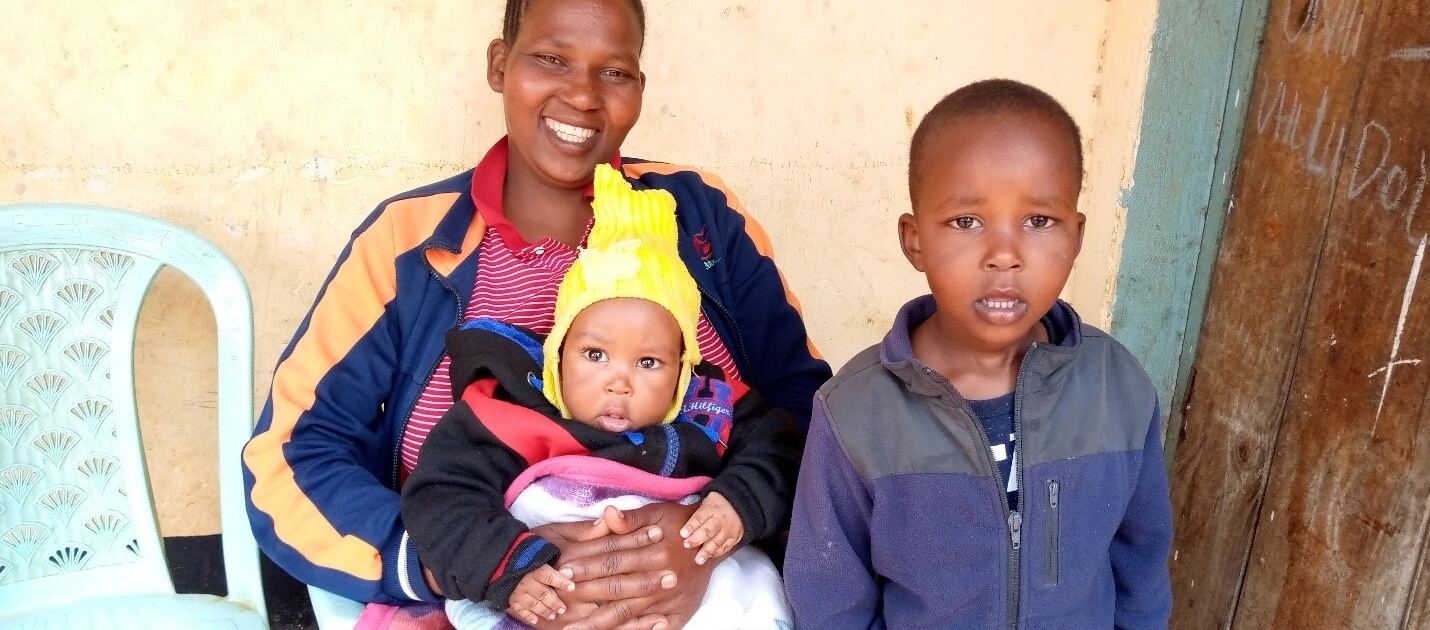

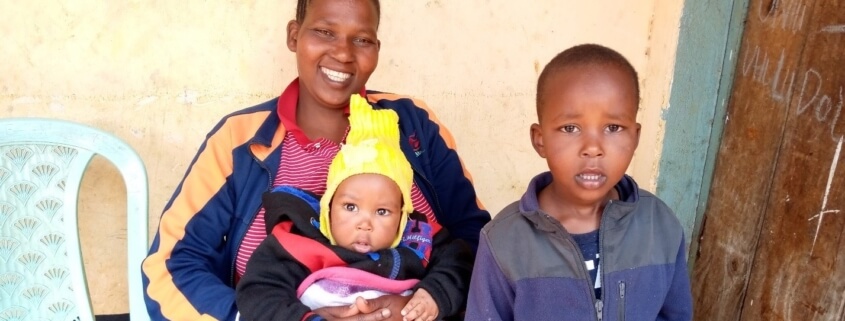
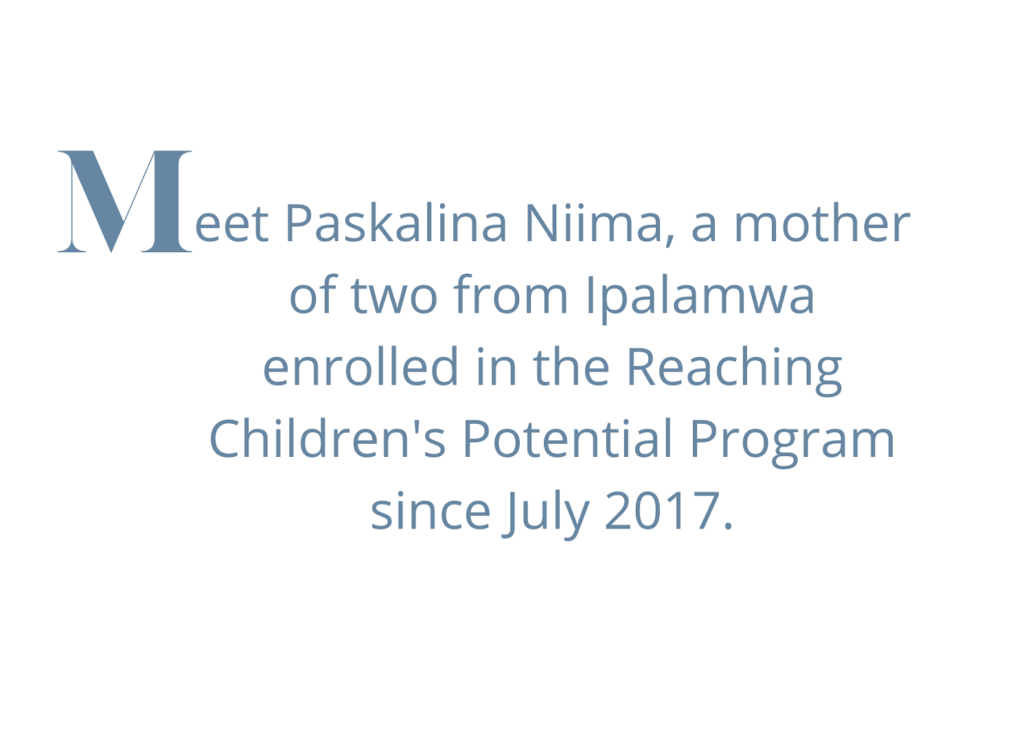
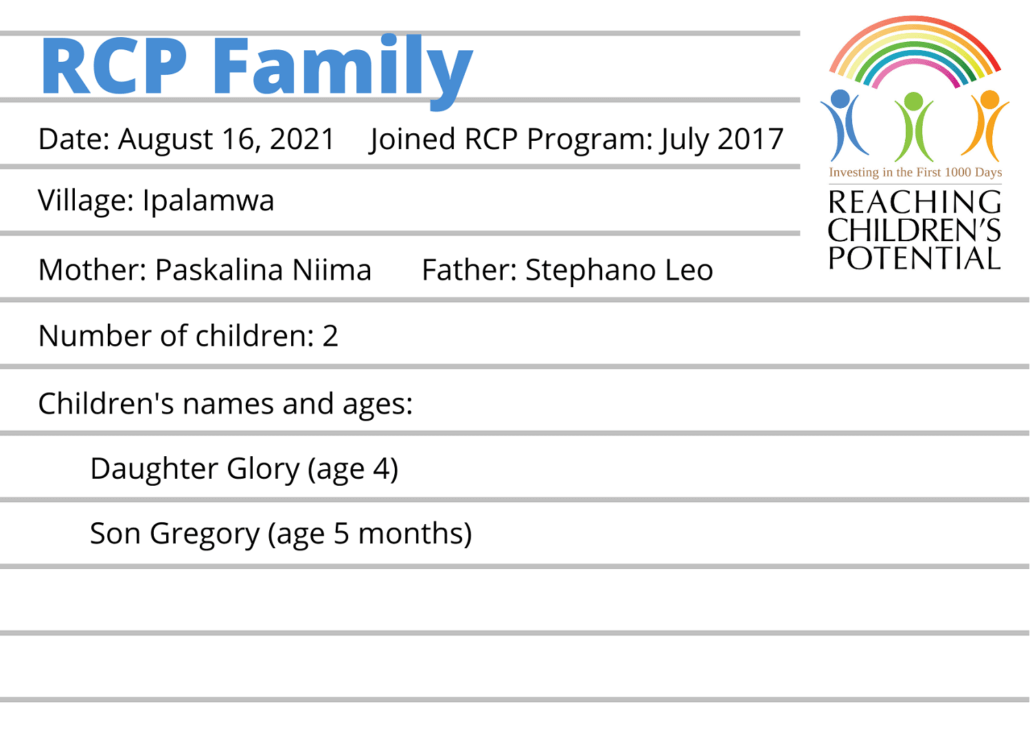

 2019
2019
Leave a Reply
Want to join the discussion?Feel free to contribute!